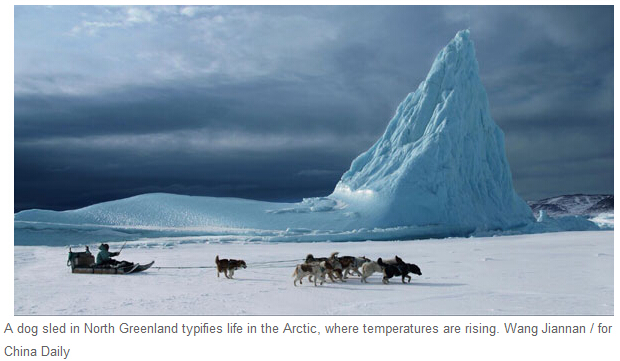| News & Events |
| Location:Home > News & Events > Science and Technology News |
| China embarks on sixth Arctic trek to explore the North Pole |
China's sixth Arctic expedition will set off from Shanghai on July 11 to study the North Pole and how changes in the region's climate are affecting the world. Sixty-five scientists will take part in the 76-day expedition, including three from the United States and one each from Germany, Russia and France. It will be China's sixth trip to the region since 1999. "Exploring the Arctic Ocean is vital to understanding the link between climate change in the Arctic and increasing extreme weather events in China," said Wang Yong, head of the division of science programs of the Chinese Arctic and Antarctic Administration. As the planet and Arctic temperatures get increasingly warmer, scientists from around the globe are trying to unravel the Arctic's role in global climate change. Many scientists agree that the summer melting of the Arctic ice has serious consequences for Earth's climate. Li Yuefeng, climate expert from the National Climate Center, said precipitation in China may be affected by the summer climate in the Arctic. "Only when we collect more atmosphere and ocean data about the region can scientists further explore how the Arctic climate is affecting China," Wang said. In addition to studying the region's impact on climate change, there has been a surge of interest in the Arctic because of its rich natural resources. The US Geological Survey has estimated that the Arctic contains up to 30 percent of the world's undiscovered gas deposits and 13 percent of its undiscovered oil resources. There also is the possibility of a shorter commercial sea route during the summer. Russia and other countries with an Arctic coastline are laying claims to the region's seafloor, which is said to contain one-fourth of the world's mineral resources. The untapped riches become more accessible because of the summer ice melt. "Like other countries, China is also interested in the resources and the Northern Sea Route," Wang said, referring to the shipping lane from the Atlantic Ocean to the Pacific Ocean along the Russian Arctic coast. Wang added that the route can help Chinese shipping companies reduce their transit times between China and Europe. Zhai Jiugang, deputy head of the Ministry of Transport's Maritime Safety Administration, said the route can save Chinese cargo ships 5,186 kilometers and nine days from the traditional voyage to Europe. During the expedition, Chinese scientists will collect information on climate change, consider future uses of the Northern Sea Route and explore the region's resources, Wang said. An ongoing research project backed by the US Department of Energy has predicted that the Arctic could lose its summer sea ice cover by as early as 2016, 84 years ahead of conventional models' projections. "As a latecomer, China is accelerating its pace in exploring the Arctic," said Wang, who added that a new icebreaker will be built as part of the coming 13th Five Year Plan (2016-20) to enhance the country's polar expedition capacity. "Once the ship is built, the Arctic expedition can be conducted every year," he said.
|
| Appendix Download |
|
|
